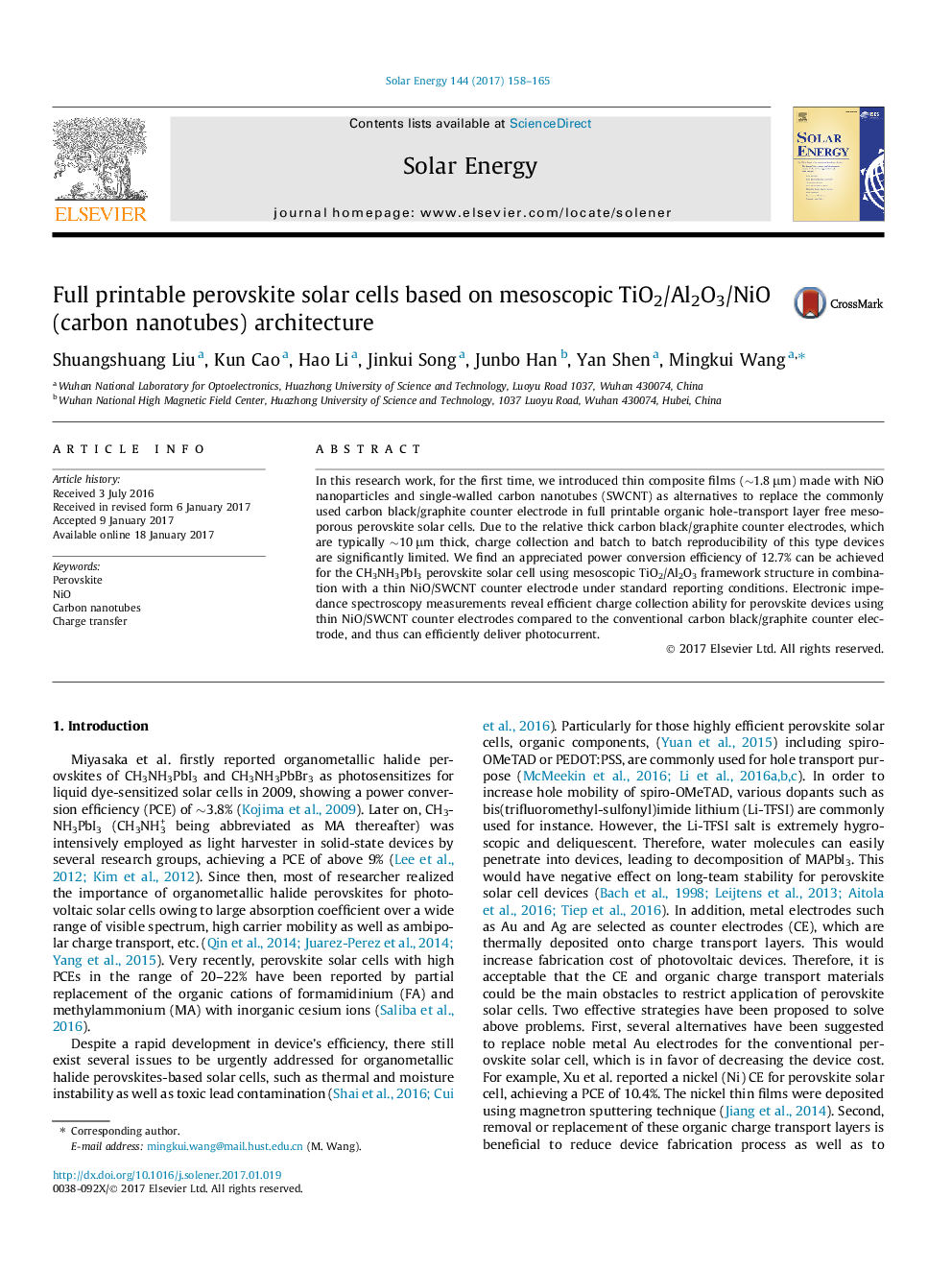| Article ID | Journal | Published Year | Pages | File Type |
|---|---|---|---|---|
| 5451113 | Solar Energy | 2017 | 8 Pages |
â¢Thin nanocomposite film (â¼1.8 μm) made with NiO and SWCNT is introduced for perovskite solar cells.â¢A power conversion efficiency of 12.7% can be achieved for hole transport material free devices.â¢The thin counter electrode shows efficient charge collection ability.
In this research work, for the first time, we introduced thin composite films (â¼1.8 μm) made with NiO nanoparticles and single-walled carbon nanotubes (SWCNT) as alternatives to replace the commonly used carbon black/graphite counter electrode in full printable organic hole-transport layer free mesoporous perovskite solar cells. Due to the relative thick carbon black/graphite counter electrodes, which are typically â¼10 μm thick, charge collection and batch to batch reproducibility of this type devices are significantly limited. We find an appreciated power conversion efficiency of 12.7% can be achieved for the CH3NH3PbI3 perovskite solar cell using mesoscopic TiO2/Al2O3 framework structure in combination with a thin NiO/SWCNT counter electrode under standard reporting conditions. Electronic impedance spectroscopy measurements reveal efficient charge collection ability for perovskite devices using thin NiO/SWCNT counter electrodes compared to the conventional carbon black/graphite counter electrode, and thus can efficiently deliver photocurrent.
Graphical abstractThin composite films (â¼1.8 μm) made with NiO nanoparticles and single-walled carbon nanotubes (SWCNT) as alternatives to the commonly used carbon black/graphite CE in HTM-free perovskite solar cells, showing an appreciated power conversion efficiency of 12.7%.Download high-res image (70KB)Download full-size image
